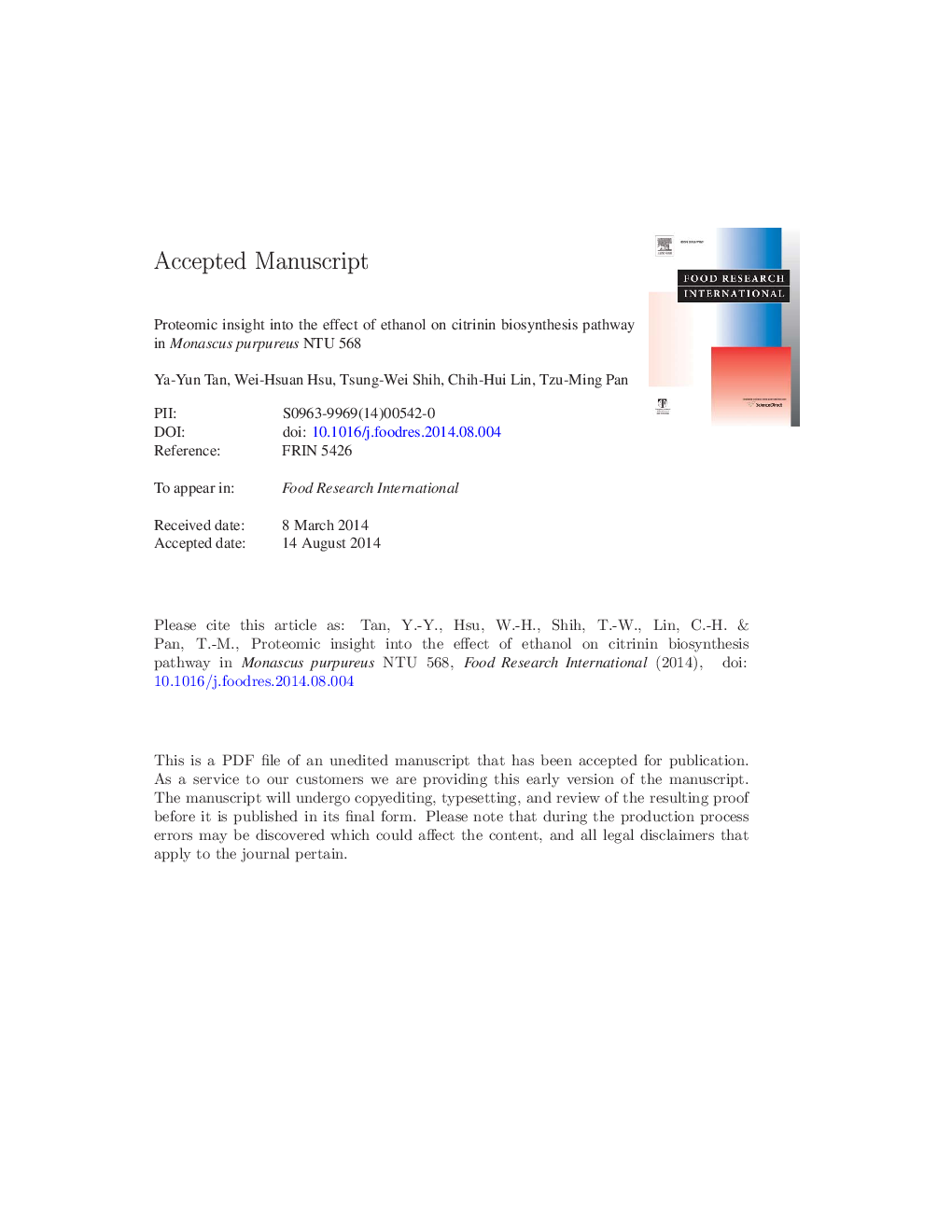| Article ID | Journal | Published Year | Pages | File Type |
|---|---|---|---|---|
| 6396743 | Food Research International | 2014 | 54 Pages |
Abstract
Monascus species produce several potent bioactive metabolites through polyketide secondary metabolic pathways; however, little is known of the regulation of metabolic processes in this organism. Therefore, we investigated the effect of extreme growth conditions on the production of secondary metabolites by Monascus purpureus strain NTU 568 and identified pathways that plausibly regulate the polyketide pathways by using proteomic analysis. Citrinin, a type of antibiotic, is synthesized through the polyketide pathway in M. purpureus NTU 568. We hypothesized that production of citrinin might be inhibited by ethanol. When M. purpureus NTU 568 was cultured in the medium containing 4% ethanol, the secretion of secondary metabolites was inhibited, but the dry cell weight was increased. We also found that branched chain amino acid degradation and the expression level of aldehyde dehydrogenase (ALDH) were downregulated, but proteins related to the heat shock response were induced. Furthermore, polyketide synthesis-related proteins, fatty acid synthase, epoxide hydrolase, and proteins involved in the shikimate secondary metabolic pathway were inhibited by ethanol treatment. These results suggested that reduced production of polyketide metabolites resulted not only from the expression levels of proteins in the polyketide synthesis pathway but also from reduction in the concentration of primary metabolism-generated molecules (e.g., acetyl-CoA, fatty acids) that are used as substrates for polyketide syntheses. This study provides insights into the polyketide secondary metabolism of Monascus as well as into improvement of the production of bioactive secondary metabolites in Monascus species.
Related Topics
Life Sciences
Agricultural and Biological Sciences
Food Science
Authors
Ya-Yun Tan, Wei-Hsuan Hsu, Tsung-Wei Shih, Chih-Hui Lin, Tzu-Ming Pan,
